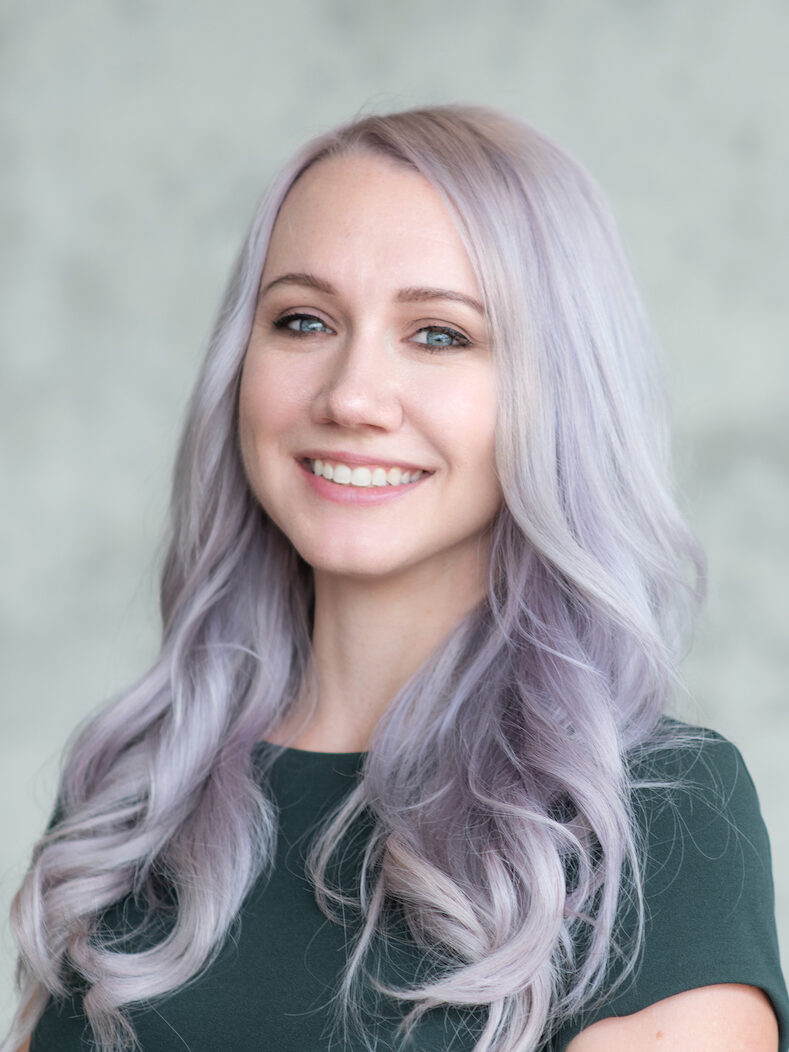Supporting research at VAI is a passion for Ron Rutkowski
Ron Rutkowski has a lot left to do.
At 58 years old, the West Michigan native is working his way through an extensive bucket list, including skydiving and traveling. Before the pandemic, he also was a frequent visitor to Van Andel Institute and, as a person with Parkinson’s disease, a reminder of why the research conducted at the Institute is so important.
“It’s amazing stuff the scientists do here,” Rutkowski said. “Research is everything. Without it, we would know nothing.”
Rutkowski’s experience with Parkinson’s disease began about a decade ago. In the beginning, there were small signs that something was amiss — a slight tremor in his hands, one arm not swinging while he walked, constantly tiring easily. Then, one day, Rutkowski froze while working on a construction project, his arm unable to move.
“Freezing” is a trademark symptom of Parkinson’s disease and, like Rutkowski, many people assume that they’re experiencing a stroke or a pinched nerve. The incident prompted him to go to the doctor, who referred him to a neurologist. Soon after, he heard the news that few people that young expect to hear — at 42 years old, Ron Rutkowski was diagnosed with Parkinson’s disease.
The news stunned him. Diagnosing Parkinson’s disease is difficult — there’s no definitive test, no way to ascertain a black-and-white answer. In lieu of a test, doctors match up symptoms with a set of criteria and try medication; if the pills work, then it’s Parkinson’s. Still, it took trips to eight neurologists before Rutkowski would accept the news.
“It took forever to convince me,” he recalled. “If there was a test that could say, ‘You have Parkinson’s,’ people could handle it better.”
Parkinson’s disease is a progressive disorder brought on by reduced levels of the neurotransmitter dopamine, the result of cell death in the brain. Dopamine is involved in the control of movement, and the lack of it leads to telltale Parkinson’s symptoms such as tremors, stiffness and rigidity. Although clumps of misfolded proteins found throughout the brains of people with Parkinson’s may hold clues to the loss of dopamine-producing cells, the exact causes of the disease and its complexity are not entirely understood. Parkinson’s most commonly manifests in people older than 50, but for some like Ron, it can occur much earlier.
It was a devastating revelation, made more difficult when he told family and friends.
“I said, ‘Don’t say you feel sorry for me,’” he said. “God gave me this disease for a reason — I can help other people.”
That was 16 years ago, and since then Rutkowski’s life has changed significantly. He’s still an avid outdoorsman, and he spends time voraciously reading, especially if the content relates to Parkinson’s disease. He’s retired from the successful contracting company he started, but got bored after a few days and went back to work. Much of Rutkowski’s time is spent learning all he can about the disease and educating others, especially those who are considering deep brain stimulation (DBS) therapy, which he underwent in 2009.
“You have to be your own advocate,” he said. “I have to know everything that’s going on.”
This is especially true when it comes to DBS, a procedure in which surgeons implant wires into the brain that conduct an electrical signal from a small generator implanted elsewhere in the body. The electric current blocks brain signals that cause Parkinson’s symptoms such as tremors, but it also is a daunting decision to make.
“It took two years to convince me. I said, ‘Nobody is going to drill holes into my head,’” Rutkowski recalled.
Eventually, after extensive research, he decided to try the treatment and even allowed members of the press in the operating room to give people a firsthand look at what happens during the surgery and follow up.
Now, nine years later, Rutkowski is glad he did it. The electricity helps keep his symptoms at bay and makes movement easier. In addition to sharing his story with thousands through the news article, Rutkowski often speaks to people considering the surgery and facing the same fears and uncertainty he did prior to the procedure. It helps to hear it from a person who has gone through similar struggles, Rutkowski said.
“You have to keep it simple and speak in terms they can understand,” he said. “It shows them the possibility of what could be.”
Rutkowski also is a common fixture at Parkinson’s disease events in the community, including VAI’s Grand Challenges in Parkinson’s Disease symposium and Rallying to the Challenge advocate meeting, which bring together people with Parkinson’s and scientists from around the world to focus on the biggest issues in Parkinson’s research. Before the pandemic, he even gave remarks at the Institute’s annual Winterfest Celebration, which raises money for Parkinson’s research. For him, telling his story and supporting the groundbreaking work underway at VAI are ways to take control back from Parkinson’s and to advocate for himself and others.
“Supporting research is paying it forward,” Rutkowski said. “Even if we cure Parkinson’s, there’s always cancer and all of these other diseases. It’s important that people support research — we were put on this Earth to help others.”

